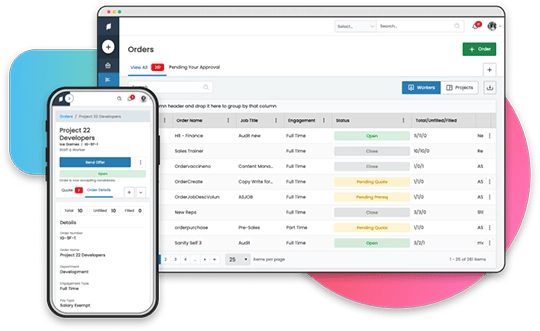Looking for help? Contact our Help & Support Team
- Home »
- Country summary »
-
Norway
Norway
Looking to conquer the world of business without getting tangled up in international employment complexities? We got this.
No cultural barrier or legal obstacle will stand in your way with us in your corner. We tailor our services to fit your unique needs so you shine no matter where you operate in the world.
Creating a worldwide workforce is a continuous process that extends beyond a contract.
TCWGlobal surpasses the typical employer of record (EOR) by ensuring that your team receives personalized attention, ranging from smooth payrolling management to customized benefits based on your specific needs and location.
In Norway, managers and others hired in an especially independent position may be exempt from various rules including working time regulations.
Fixed-term contracts are permitted only in limited circumstances where the work is of a temporary nature. Fixed-term contracts are permitted fora maximum of 12 months at a time. They can be renewed, but the total contract cannot exceed three years. After that point, the Worker can claim permanent employee status. It is very difficult for employers to terminate employment contracts in Norway, even if a fixed-term contract.
Probationary periods are permitted for up to six months. During a probationary period, only 14 days' notice of termination is required so long as there is valid cause (e.g. misconduct) and an adequate amount of formal warnings and discussions prior to the termination. Notice begins the day it is received by the Worker during the probationary period. Workers are owed all benefits.
Workers in Norway recognize 12 paid public holidays. Work performed on a public holiday must be paid at 200%.-New Year's Day-Maundy Thursday-Good Friday-Easter-Easter Monday-Labour Day-Constitution Day-Ascension Day-Whit Sunday-Whit Monday-Christmas Day-2nd Christmas Day/St. Stephen's DayWork on a public holiday and Sundays are not permitted unless required by the nature of the work being performed. Additional compensation or compensatory rest days will be required.
Workers are entitled to 25 working days of paid vacation each year (more for Workers over the age of 60). Accrued but unused leave must be paid at the end of the employment.
Workers may take three consecutive days of paid sick leave up to four times each year without producing a medical certificate. If a medical certificate is provided, the Worker is entitled to pay from the employer for the first 16 calendar days of injury / illness. After that point, the government takes over responsibility for payment ("daily sickness benefit"). Workers may be off for injury or illness for up to 52 weeks. Workers are also entitled to paid leave to care for a sick child up to their 12th birthday.
A standard workweek is Monday through Friday. 8 hours per day and 40 hours per week inclusive of a 1-hour unpaid meal break. Normal working hours may not exceed 9 hours per day or 40 hours per week. Work on Sundays is not permitted unless necessitated by the nature of the work. ANy work performed on a weekend or on a holiday should be compensated at 200%.
Work in excess of the agreed upon standard hours is considered overtime and should only occur when there is an exceptional and time-limited need for it. Overtime must be paid at 140% at minimum. Overtime must work must not exceed 10 hours per 7 days, 25 hours per 4 consecutive weeks, or 200 hours per 52 weeks.
There is a vacation allowance due in June of each year.
Unilateral termination of employment by an employer is very difficult in Norway. It requires valid cause and a formal process including at least three formal and written warnings plus a discussion of notice meeting (drøftelsesmøte) prior to giving official notice. Termination must be in writing. Notice begins on the 1st day of the month following the notice meeting. The length of notice then depends on the Worker's age and length of service. If terminated for redundancy, the Labour and Welfare Administration must be notified.
Workers must provide notice of resignation as outlined in their employment contract, which is generally 14 days during the probationary period and one to three months after the probationary period.
Even where a position is no longer needed, termination of an employment contract is very difficult and complex. However, it is possible to end an employment agreement due to objectively justified circumstances relating to the operation of the business.
TCWGlobal stands unmatched as the leading employer of record service provider. Our global reach, expertise in diverse industries, and commitment to client satisfaction makes us the best choice. Looking for a global employer of record or international payrolling partner that will work with you and not for you? Trust TCWGlobal. We are here for you.
When choosing an Employer of Record (EOR) service, people often make mistakes such as overlooking compliance, global reach, technology integration, company experience, and fee transparency. Watch this video to see what to consider when picking an EOR.

Unleash global talent with our hassle-free payrolling and staffing services.
Tap into global talent effortlessly. As the employer of record, we handle liability, governance, and compliance. Say goodbye to administrative burdens. Contact us now.